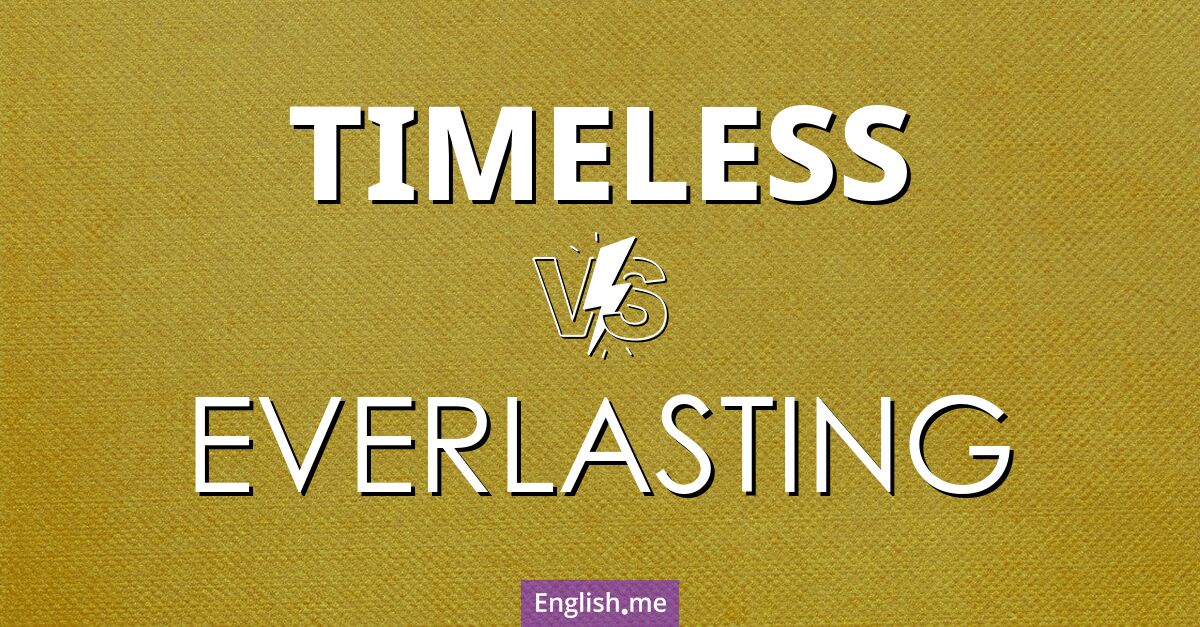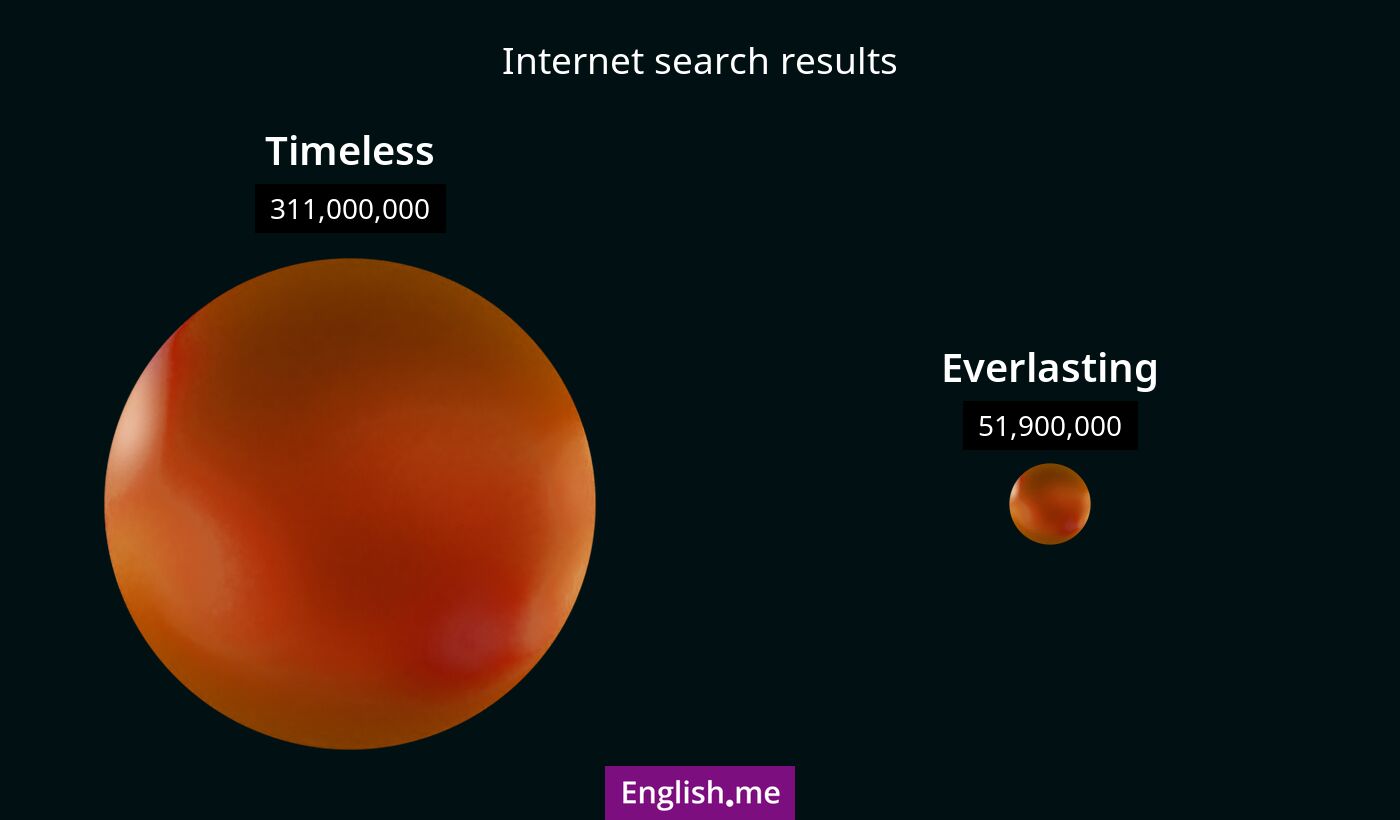"Timeless" vs. "everlasting": a comparison of enduring qualities
Reviewed and edited by  Lloyd Cooper 31/10/2024, 23:47
Lloyd Cooper 31/10/2024, 23:47
English.me team member

 What is similar?
What is similar?
Both words convey the idea of something that exists beyond the constraints of time. They suggest perpetuality and continuity without being bound by a specific time frame.
 What is different?
What is different?
While "timeless" often implies a universal or classic quality that transcends specific time periods, "everlasting" emphasizes unending duration and continuity without interruption. "Timeless" can refer to both tangible and abstract concepts that are unaffected by the passage of time, whereas "everlasting" often describes something with infinite duration.
 Which one is more common?
Which one is more common?

 Examples of usage
Examples of usage
Timeless- The beauty of her music is timeless.
- The novel addresses themes that are timeless and relatable in any era.
- His wisdom seems timeless and profound.
- Their love was described as everlasting.
- She sought everlasting fame through her art.
- The mountains stood as everlasting sentinels.

 English
English español
español française
française italiano
italiano deutsche
deutsche 日本語
日本語 polski
polski česky
česky svenska
svenska Türkçe
Türkçe Nederlands
Nederlands